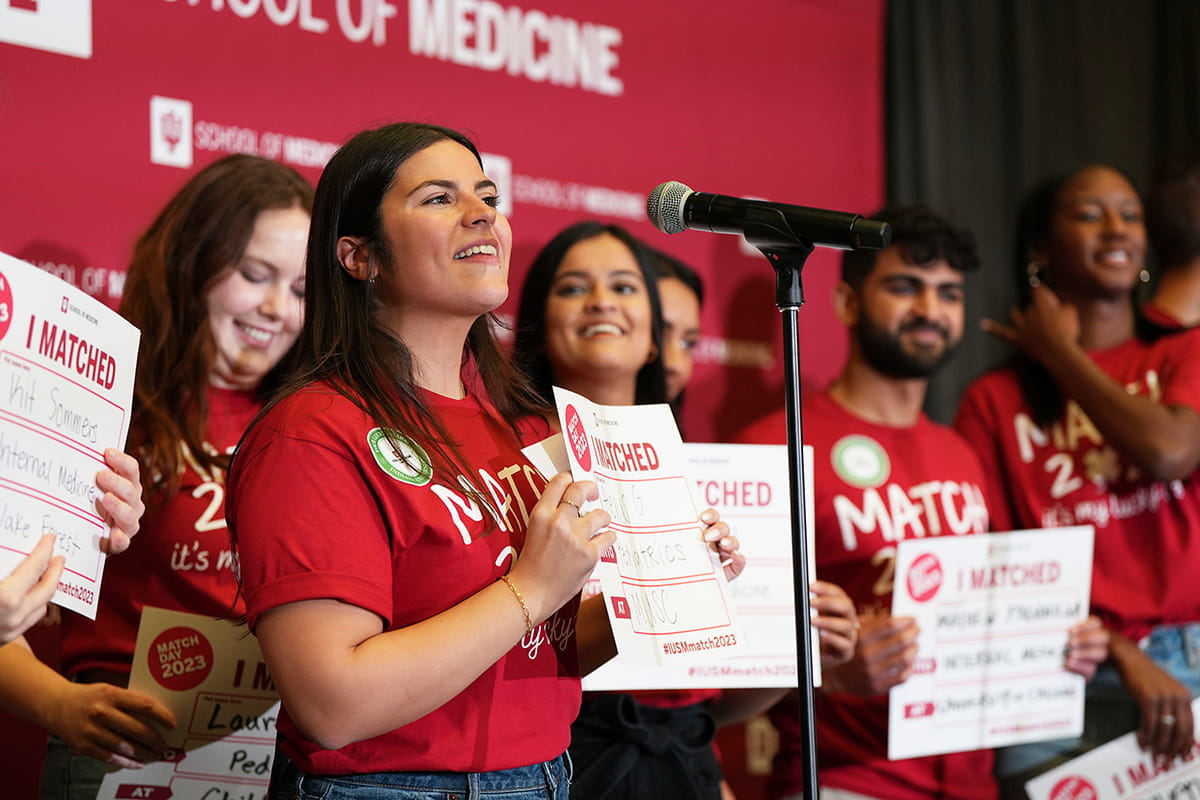OUR DONORS ARE DIVERSE in what they support, but their generosity impacts the mission of Indiana University School of Medicine in countless ways. Those who support our work annually as part of the Dean's Council are particularly important. Collectively, your contributions ensure our faculty and students have resources they can count on. You enable us to offer generous financial aid, make substantial progress against cancer, neurodegenerative and cardiovascular diseases, and improve global health.
We're grateful for all you do to help us transform health, and we wanted to share with you a few of the ways IU School of Medicine puts your gifts to work toward that goal.
Training the Best
IU School of Medicine has fulfilled an essential role in training physicians to serve Hoosiers across the state for over a century.
Meeting that mission helped us become the nation's largest medical school and enact a standard curriculum across a network of nine regional campuses. Donor funding for scholarships and other student support services helps us recruit the best and brightest incoming classes each year and bolster student success along the way.
